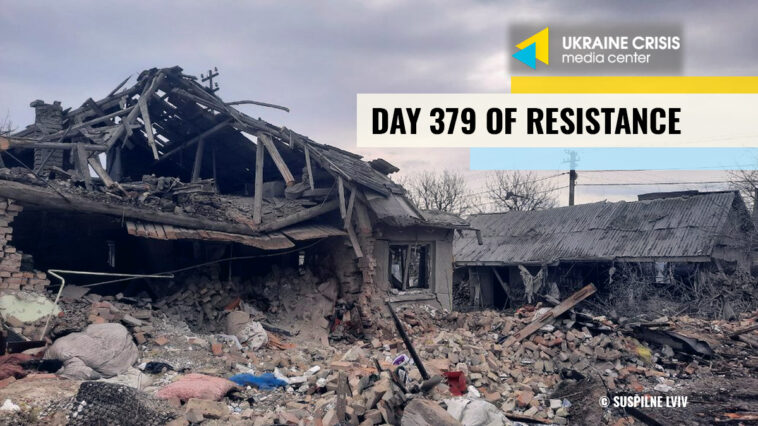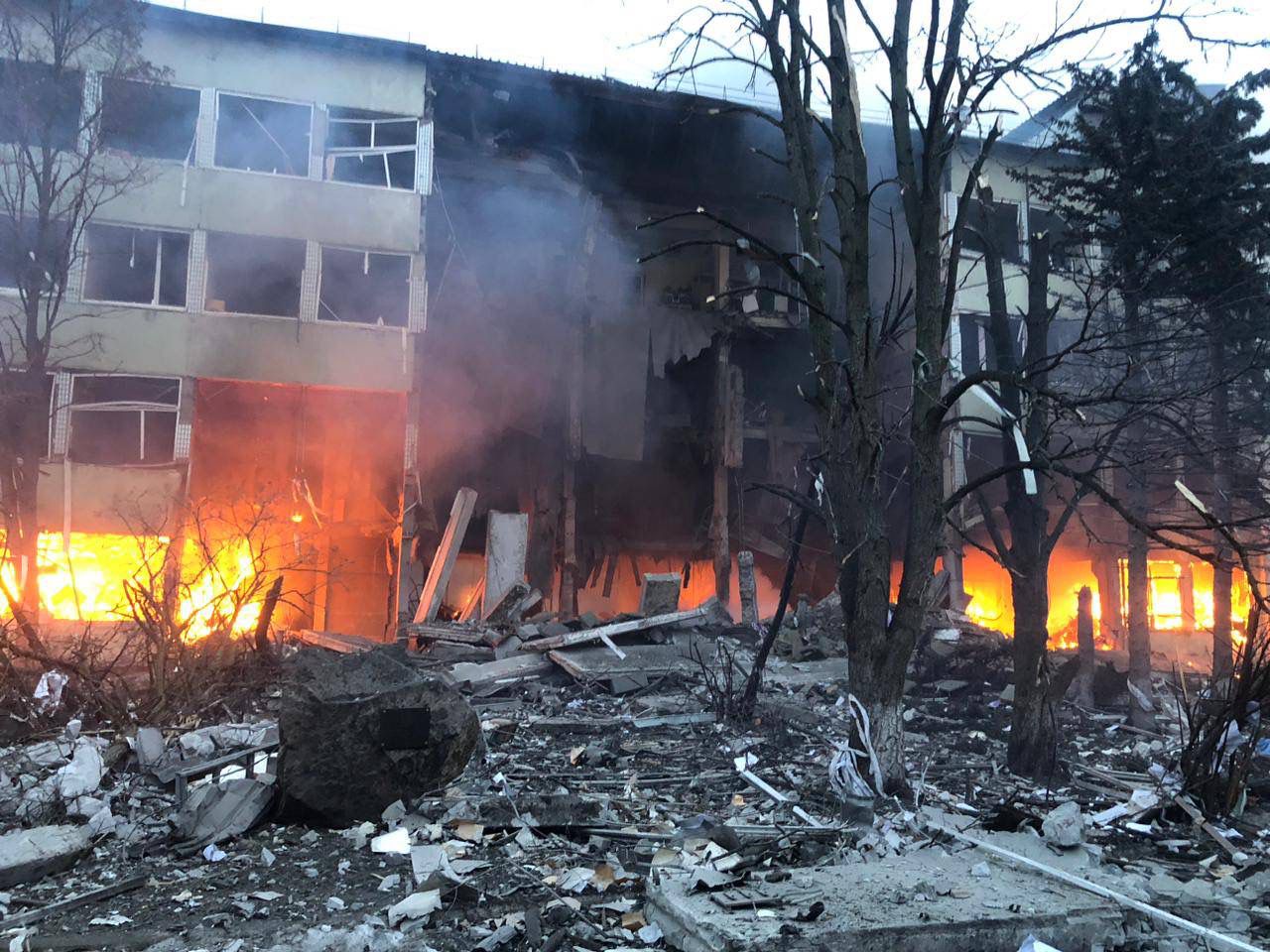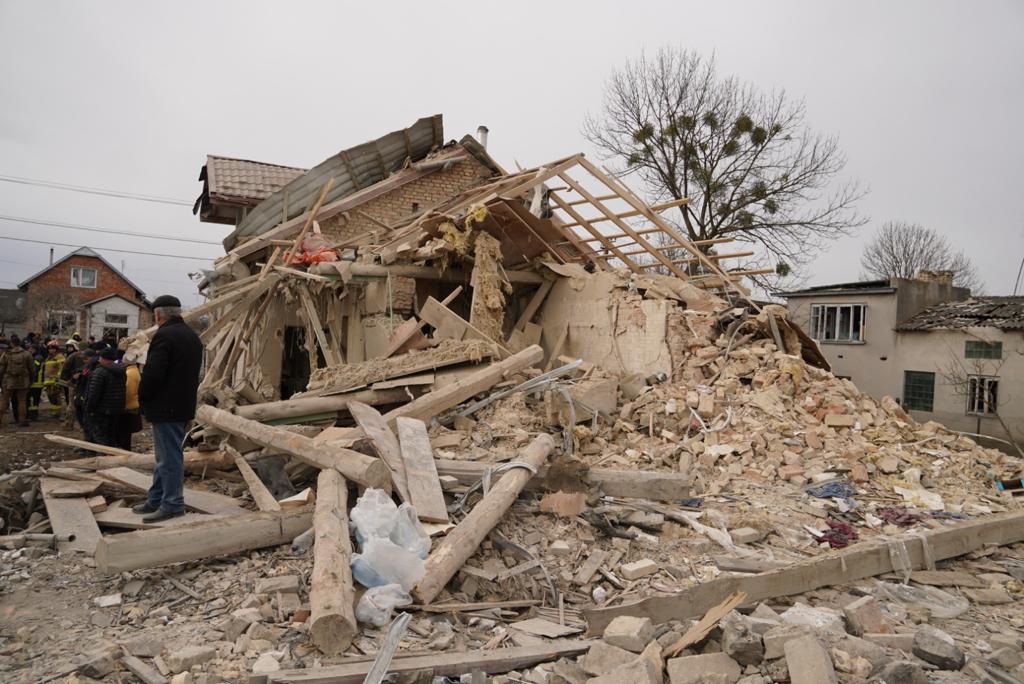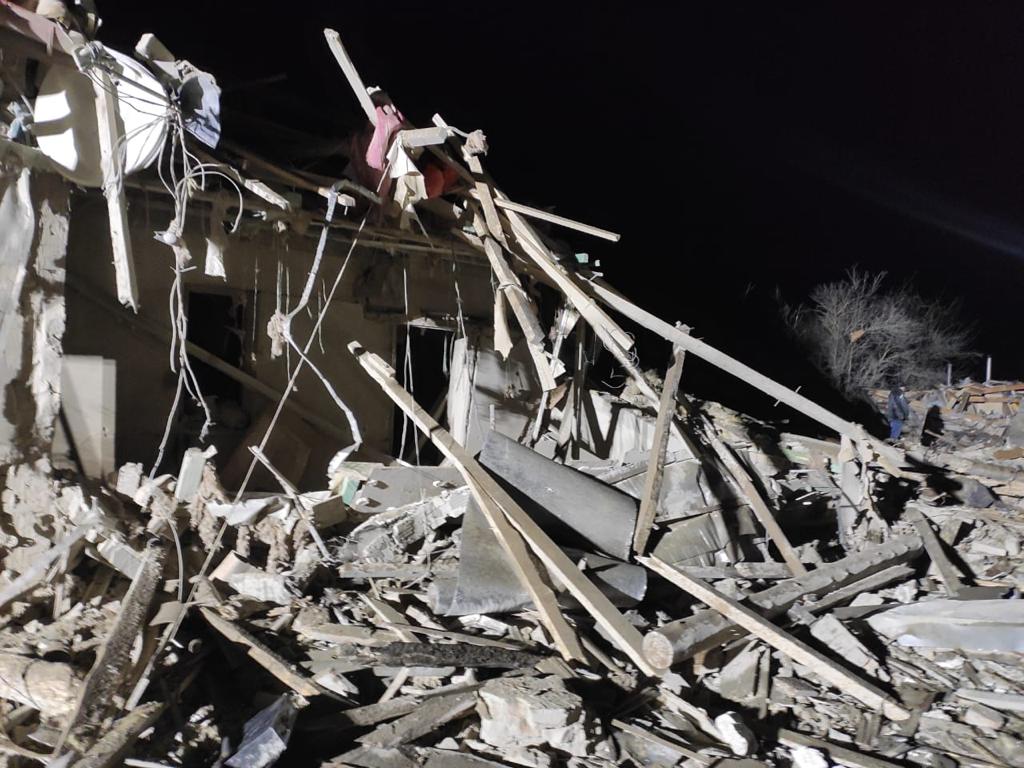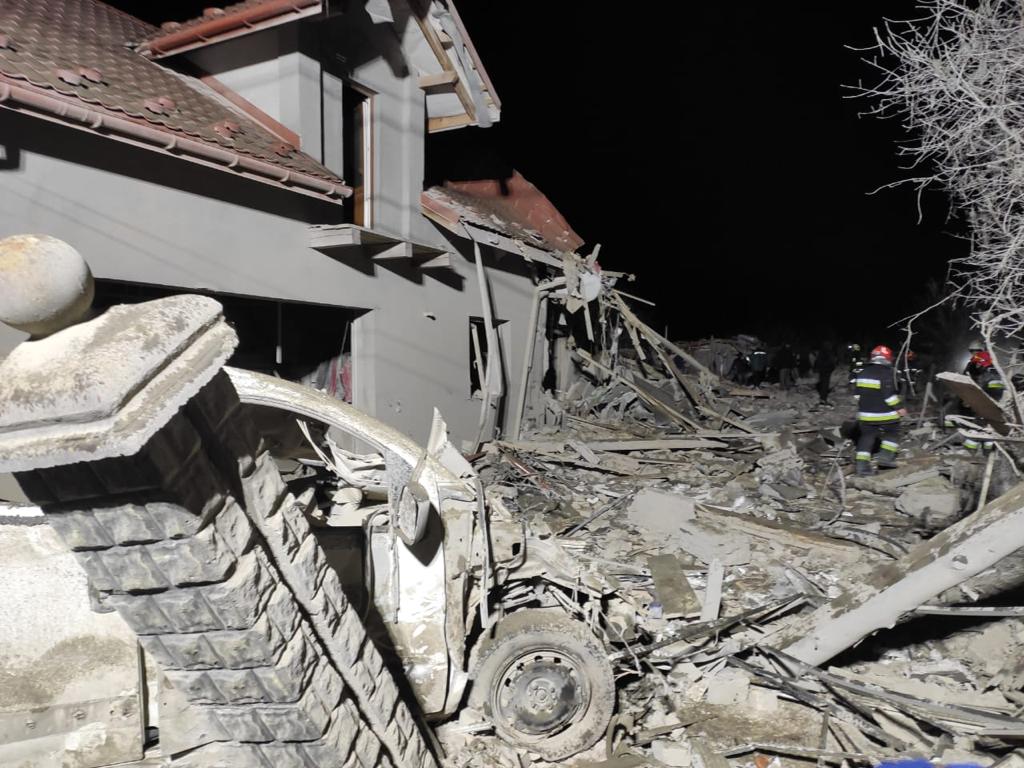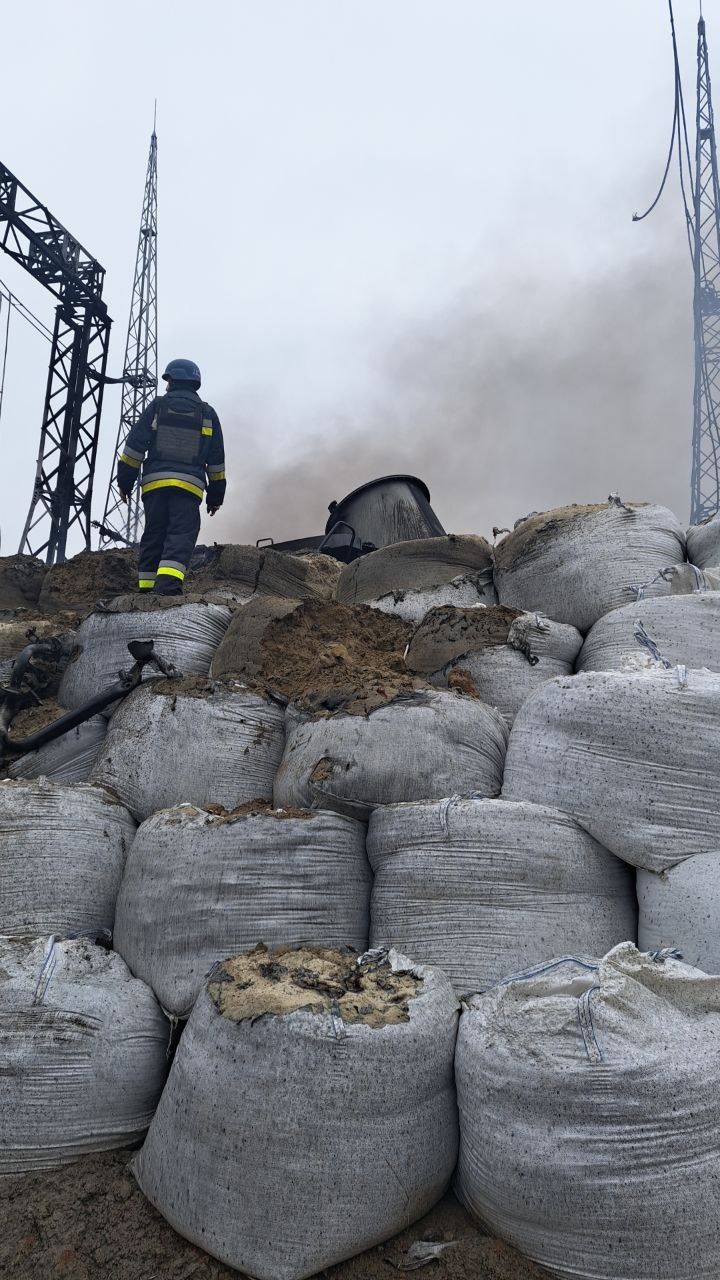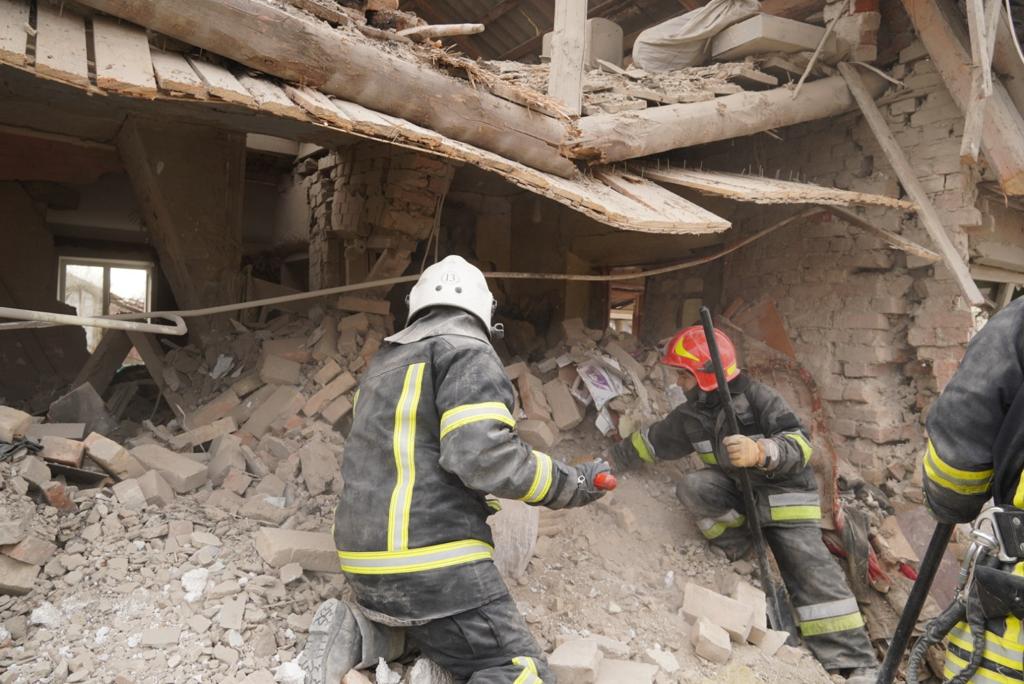Here’s what’s key on day 379 of Ukraine’s resistance. Russia launched another massive missile strike on Ukraine, targeting 10 regions. Ukraine’s intelligence warns of a large-scale provocation at Belarus-Ukraine border that Russia prepares to stage on March 11. Poland and Slovakia claim ready to send MiG-29s to Ukraine as part of coalition. Here’s a breakdown of where things stand.
Russia unleashes fresh strike on Ukraine’s energy system
On the night of March 8 into March 9, Russia launched another massive missile strike on Ukraine, using missiles of various types and Shahed drones. Explosions rocked a number of cities across the country, including Kyiv, as some of the missiles hit targets.
An air raid alert was declared in Kyiv at around 1 a.m. and spread across the country. It lasted almost seven hours.
Russia unleashed attacks on Kyiv and 10 regions, including Dnipropetrovska, Zhytomyr, Kirovohradska, Kharkiv, Sumy, Vinnytsya, Lviv, Ivano-Frankivsk, Odesa, and Zaporizhzhia regions, President Zelenskyi said. The attacks targeted energy facilities, Ukraine’s Energy Ministry said.
Russia fired eight Shahed drones and 81 missiles at Ukraine, including Kinzhal ballistic missiles and S-300 anti-aircraft missiles. Ukraine’s defense forces destroyed 34 of 48 cruise missiles of the Kh-101/Kh-555 and Kalibr types, and shot down four of eight Shahed-136/131 drones.
The strike hit an infrastructure facility in Kyiv’s Holosiyivskyi district. In Svyatoshynskyi district, missile debris fell in a residential area, injuring three. In the city of Zolochiv, in Lviv region, a missile hit private houses, killing five people.
The strikes caused major power outages in Kharkiv, Odesa, and Zhytomyr. Emergency power shutdowns were applied in these three regions, Ukraine’s national energy company Ukrenergo said. The Zaporizhzhia nuclear power plant was connected back to the power grid by midday Thursday. The station was de-energized and went into blackout mode. The shutdown created a serious risk of a nuclear incident as the emergency diesel generators have enough fuel to power the plant for 10 days.
Commenting on Russia’s attack, Ukraine’s Foreign Minister Dmytro Kuleba said: “Russia launched a massive missile and drone attack on Ukraine overnight, leading to loss of lives and damaging civilian infrastructure. No military objective, just Russian barbarism. The day will come when Putin and his associates are held accountable by a Special Tribunal.”
Russia planning for large-scale provocation at Belarus-Ukraine border on March 11, Ukraine’s intelligence says
According to Ukraine’s military intelligence, Russia is preparing to stage a large-scale provocation at the Belarus-Ukraine border. Kremlin propagandist Vladimir Solovyov will be on the ground to cover the planned incident.
“We have information that indicates Russian political and military leadership is preparing to stage a large-scale provocation at the Belarus-Ukraine border. Chief Russian propagandist is expected to arrive in Belarus to cover the incident in detail,” the Main Intelligence Department of Ukraine’s Defense Ministry said in a Telegram post. The intention is to broadcast live on TV and radio from the ground on March 11, so that other Russian media could pick up on the reports.
“Several groups of Russians will arrive in Belarus [to accomplish the plan]. They are possibly planning to destroy infrastructure facilities and cause civilian casualties,” the defense intelligence said.
The provocation aims to increase hostility towards Ukraine among the Belarusians and justify the direct involvement of the Belarusian armed forces in the war alongside Russia.
On March 6, spokesperson for the State Border Guard Service of Ukraine Andriy Demchenko said that the situation on the border with Belarus is under control, but “somewhat tense” due to the presence of the Russian forces on the ground. There are reportedly 9,000-10,000 Russian troops in Belarus, Ukraine’s State Border Guard Service said.
Poland, Slovakia ready to send MiG-29s to Ukraine as part of coalition
Poland and Slovakia are ready to send their MiG-29 jet fighters to Ukraine as part of an international coalition, Slovak Defense Minister Jaroslav Nad said on Thursday, March 9.
Nad also said it was a matter of discussion between himself and his Polish counterpart at a meeting of EU defense ministers in Sweden on Wednesday and that they agree on the matter. Polish President Andrzej Duda said Wednesday that Poland was ready to provide Ukraine with the MiG-29 fighters in coalition with other countries.
The prospects for a supply of fighter jets pulled away from a standstill, spokesperson for Ukraine’s Air Force General Yuriy Ihnat said, commenting on Poland’s and Slovakia’s readiness to send their MiG-29 war planes to Ukraine.
At the same time, Ukraine needs more modern fighter jets like the F-16, Ihnat said. Some of the MiG-29s could be used for spare parts for the Ukrainian planes, he added.
Podcast Explaining Ukraine. Kryvyi Rih, the hometown of Volodymyr Zelenskyy, Ukraine’s president | Ep. 205
Kryvyi Rih is a big industrial Ukrainian city, and the hometown of president Zelenskyy. We went there to see what the city looks like during the war, and how (and if) it is changing. In this episode, we try to describe both the civic and political life of the city. Hosts: Volodymyr Yermolenko, Ukrainian philosopher and journalist, chief editor of UkraineWorld.org, and Tetyana Ogarkova, Ukrainian scholar and journalist in charge of international outreach at the Ukraine Crisis Media Centre.
The significance of Shevchenko in a modern struggle for liberation. Ukraine in Flames #364
Shevchenko’s life is a symbol of the thorny path of the struggle for freedom. It serves Ukrainians as a living example of how one can free oneself from the captivity of misery, sorrow, inferiority complex and national despair. When writing about Ukraine’s past, Shevchenko actually predicted its future. Watch Ukraine in flames #364 to find out about the significance of his figure and poems in the times of modern struggle for our liberation.
Guests:
- Yuriy Kovaliv, Doctor of Philological Sciences, Professor, Laureate of Shevchenko National Prize, Poet, Literary Critic
- Tamara Holosha, Head of the Department for the Preservation of Unique Books, Prints and Archival Materials of the Taras Shevchenko National Museum
- Halyna Karpinchuk, Research Fellow at the Taras Shevchenko Institute of Literature
- Oleksandr Khomenko, Soldier of Armed Forces of Ukraine

